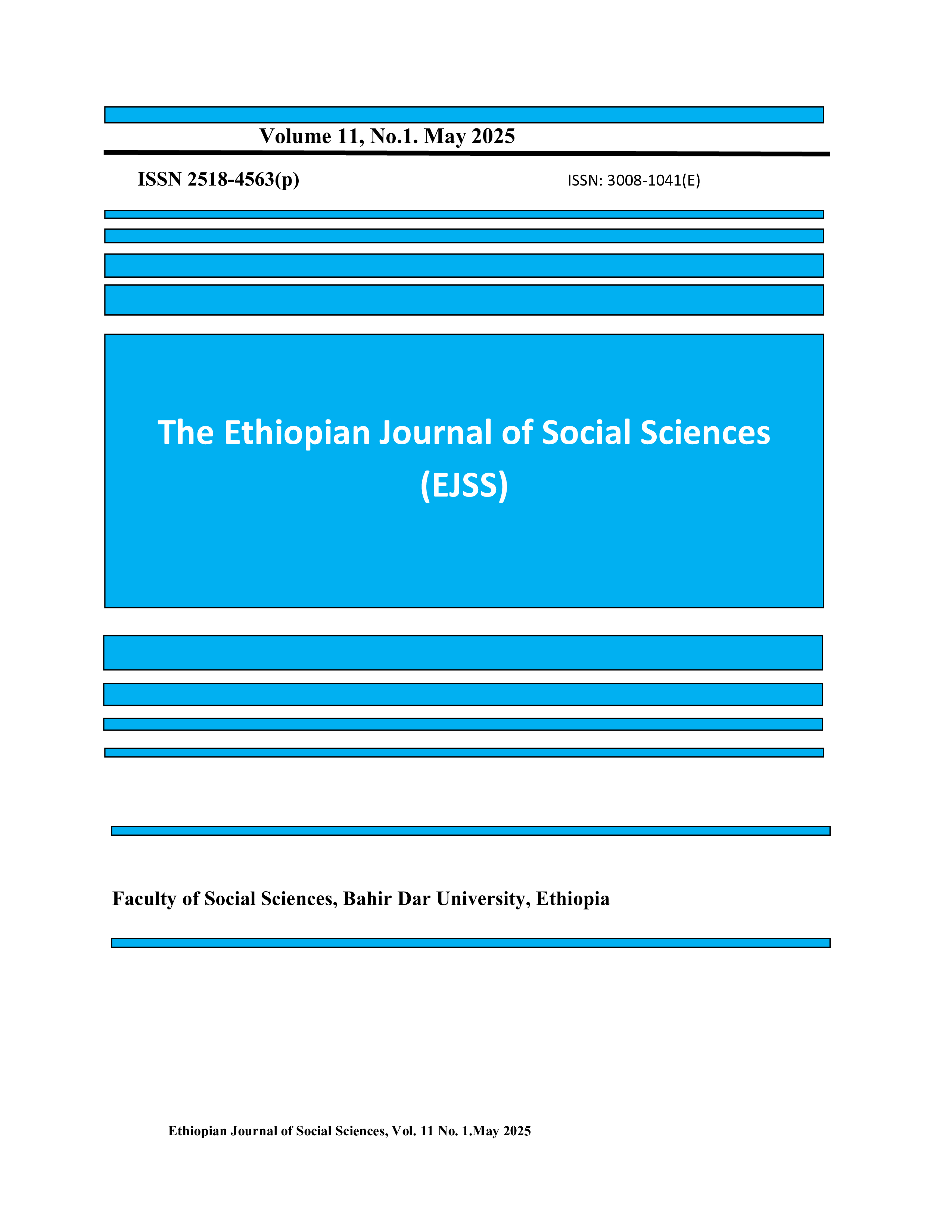Preparation and utilization of compost and implication for selected crop productivity: The case of Guagusa Shikudad District, Northwest Ethiopia
Abstract
The deterioration of soil fertility is a significant issue in Ethiopia's agricultural sector. Organic fertilizers, particularly compost, can enhance soil fertility; however, compost preparation and utilization remain limited. This study aimed to identify the determinants of compost preparation and its implications for crop productivity in Guagusa Shikudad Disctict. Using a cross-sectional research design, data were collected from 124 households through surveys and interviews with agricultural experts. Quantitative data were analyzed using descriptive and inferential statistics including t-tests, one way ANOVA, Chi-square test, and binary logistic regression modeling. The results indicated that factors such as age, education, composting materials, farmer perception, economic status, extension services, farming experience, family size, and farm size significantly influenced compost preparation and utilization. The binary logistic regression model identified positive determinants (age, education, input availability, perception, economic level, extension support, farming experience, and family size) and a negative determinant (farm size). This variation was tested using a one-way ANOVA, yielding a statistically significant result (p < 0.05), which indicates a significant difference between users and non-users of compost. The results, moreover, indicate that compost utilization significantly enhances crop production and productivity. It is recommended that the district’s agricultural office and stakeholders promote compost preparation and utilization among smallholder farmers through continuous capacity building and extension services.
Keywords: Adoption, Compost utilization, Crop productivity, Farming experience, Farm size, Guagusa Shikudad district
Copyright (c) 2025 Lakachew Ayenew Gebeyehu, Addisu Dagnaw Mekonen, Ayalneh Yedem Fentie

This work is licensed under a Creative Commons Attribution-ShareAlike 4.0 International License.
Authors who publish with this journal agree to the following terms:- Authors retain copyright and grant the journal right of first publication with the work simultaneously licensed under a Creative Commons Attribution License that allows others to share the work with an acknowledgement of the work's authorship and initial publication in this journal.
- Authors are able to enter into separate, additional contractual arrangements for the non-exclusive distribution of the journal's published version of the work (e.g., post it to an institutional repository or publish it in a book), with an acknowledgement of its initial publication in this journal.
- Authors are permitted and encouraged to post their work online (e.g., in institutional repositories or on their website) after publication in EJSS.

